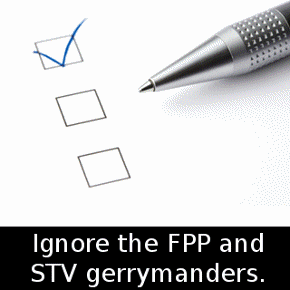Up to 40 percent of the Maori electorate support the Maori Party
This election is about the Maori vote - because that vote will decide the election. The media knows this, and knows that an increasing Maori Party electorate vote could reduce the overhang - but less likely lead to a Labour government it is seeking.
Perhaps that is why in its latest Marae poll ( which polled more than twice as many non- Maori as Maori), it chose not to differentiate the vote of Maori between the general and Maori electorates.This is significant given that a higher proportion of Maori in general electorate seats are likely to list vote Labour.
According to recent polling, Maori do support Labour - but one in five Maori have indicated they`ll vote for the Maori Party. But in the Maori electorate thats even higher - except that the media don't want you to know that as it has not split up the Maori vote between the two electorates. But pollsters have told me that Maori electorate support the Maori Party is a lot more than 20 per cent - in Tamaki Makaurau it is 36 percent.
The Maori Party could make a clean sweep of the seats as well. If this election is a close contest between the centre left and the centre right, National will benefit more than Labour as the fewer seats the Maori Party wins, the harder it may be for National to govern.
Labels: Maori, Maori Party, Maori seats




2 Comments:
I think you have it exactly backward.
The more seats the Maori party wins, the bigger the overhang,.....and the greater the number of seats National would need to have a majority.
If the Maori party win 4 seats, National would need 61. If the Maori Party win all 7, the Nats would need 63 seats in a 124 seats House.
As for the media being Pro-labour...what have you been smoking?
Its true that the more seats the Maori party win the bigger the Parliament will be, particularly if there is a low party vote.
But the higher the Maori vote, the smaller the overhang. If the Maori Party win just three seats and holds its vote the overhang is likely to be smaller if it wins seven seats and doubles its party vote. So your example assumes a low Maori Party vote.
What I said was the fewer seats the Maori Party wins, the harder it may be for National to govern. (because these seats will go to Labour). For example, with seven seats and a 4% party vote, the higher the overhang the easier it is for National to form a govt - with three seats and a 4% party vote, the overhang wont be as big and it will be harder for National to govern. With seven seats and a low party vote Labor has more ability to form govt. But with seven seats and increased MP vote, any overhang will decrease at the expense of Labours vote, meaning National is more likely to govern as teh right has more share of the non MP vote, which is why Clark opposes two ticks for theMP...
so the higher the party vote/ the more seats the MP wins the more likely National is to govern, the lower the Maori Party vote/ the fewer seats the MP wins, the more likely Labour is to govern as Labour get more votes/seats.
Post a Comment
Subscribe to Post Comments [Atom]
<< Home